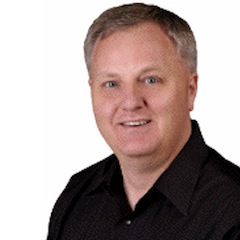
Panel Discussion: Designing With Passion
The Climb - Experiencing the Rise of Elixir from the Inside
Dave ThomasPragmatic Programmer turned Publisher
Panel Discussion: Designing With Passion
The panel discussion will focus on programming models and will be moderated by Bruce Tate. We'll start by asking each inventor about their approach when creating their languages:
· How do you organize thoughts and code?
· What unique advances in usability did your language make?
· Why do your users love to code in it?
This opening will lead to a Q&A discussion on what the language inventors got right and what they would do differently today if given the chance to start again. What decisions made the biggest impact on that solution? What are the consequences of those decisions? Don't miss this opportunity to learn directly from language creators!
The Climb - Experiencing the Rise of Elixir from the Inside
Languages can't succeed in a vacuum. In 1999, Dave Thomas wrote the Pickaxe book, a text that played a critical role in the adoption and growth of the Ruby programming language. In 2014, he was seeing some of the same signs in a young programming language called Elixir. In 2014, Bruce Tate and José Valim were coming to grips with the fact that Elixir needed a web server and realizing José's Dynamo server was not going to succeed. Neither had any idea what it would take to climb the mountain in front of them. In this talk, we'll tell those stories and others as we explore the Elixir story, not from the perspective from the core team but as members of the supporting community.
SlidesVideo
About Dave
Dave Thomas is a cornerstone of the Ruby community, and is personally responsible for many of its innovative directions and initiatives. Dave is a programmer, and now he is an accidental publisher. He wrote The Pragmatic Programmer with Andy Hunt at the end of the '90s, and that experience opened a new world for them. They discovered a love of writing that complemented their love of learning new things. Dave is one of the authors of the Agile Manifesto, and he is probably responsible for bringing Ruby to attention of Western developers with the book Programming Ruby. He was one of the first adopters of Rails, and helped spread the word with the book Agile Web Development with Rails. He enjoys speaking at conferences, running public and private training. But most of all, he loves coding. GitHub:
pragdave
Twitter:
@pragdave
